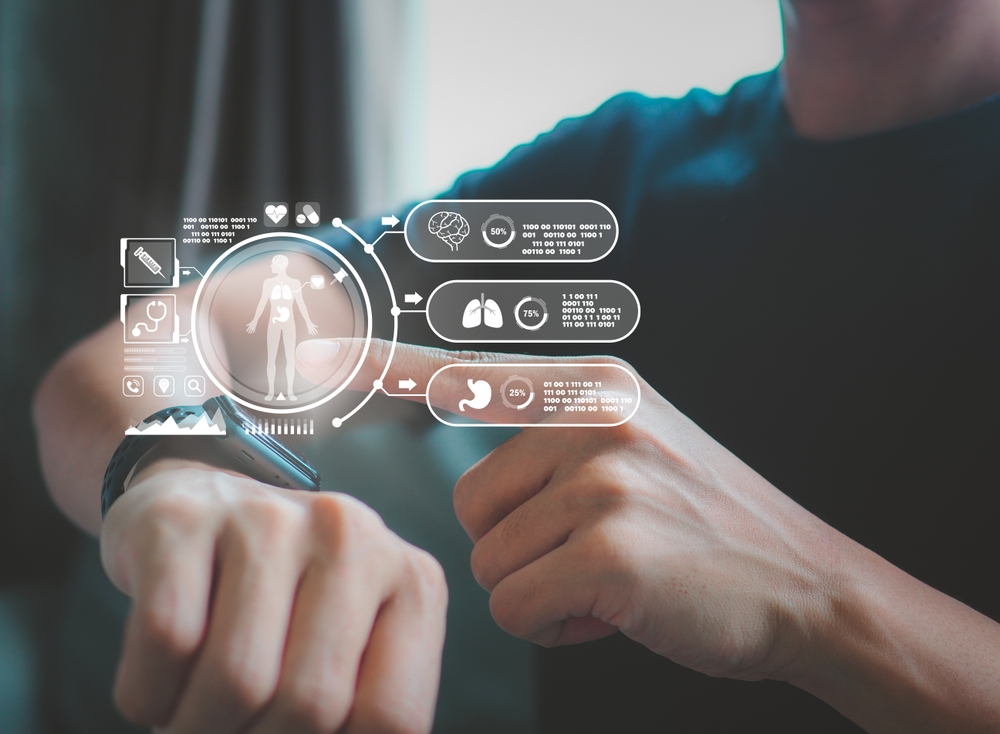
Artificial intelligence is transforming the sports industry, pushing the boundaries of performance and monitoring. As showcased at the SportsPro AI conference on September 23rd and 24th at the London Stadium, AI is set to redefine how we train, compete, and even understand athleticism. This revolution is reshaping four key areas in the performance space, promising to elevate sports to a whole new level.
AI is pushing the boundaries of injury prevention and rehabilitation through the innovative use of digital twins—virtual replicas of an athlete’s body. This technology allows for detailed simulations of training scenarios, helping to predict and prevent injuries.
Springbok Analytics is at the forefront of innovation, transforming standard 2D MRI scans into highly detailed 3D models of athletes’ musculoskeletal systems. By visualizing muscle volume, quality, fat infiltration, and asymmetries between the left and right sides of the body, Springbok provides coaches and medical staff with unprecedented insights. This advanced technology not only improves injury assessment but also enhances recovery protocols, allowing for more informed return-to-play decisions. With personalized training programs tailored to each athlete’s unique muscular profile, teams can optimize performance, prevent injuries, and design targeted rehabilitation strategies that align with the demands of specific sports.
Springbok Analytic’s tool measures left-right muscle asymmetry, highlighting imbalance that can help predict injury, contextualise performance and understand recovery.
AI isn’t replacing coaches—it’s amplifying their ability to make smarter, faster decisions. Instead of spending countless hours analysing footage and statistics, coaches can now rely on AI to handle the heavy lifting. Take the French Rugby Federation’s partnership with SAS Viya as an example. In 2021, they integrated AI to analyse crucial elements like lineouts, providing detailed insights into player positions, throw speed, and distance. This helped the coaching staff make informed decisions about set-piece strategies, fine-tuning their approach to capitalize on each player’s strengths and address weaknesses.
The collaboration quickly expanded to cover other key aspects of the game, such as passing, tackling, scrums, and footwork. After each match or training session, the platform automatically generates comprehensive reports, complete with video analysis and custom dashboards. This automation not only saves time for video analysts and sports scientists but also allows coaches to react more swiftly to emerging patterns and needs on the field.
By delivering a constant stream of updated data, AI has given the French Rugby Federation a strategic edge, even allowing them to analyse opponents’ tendencies. Since incorporating this technology, the French national team has won 19 out of 20 matches through April 2023, showcasing how AI can be a game-changer in high-level sports performance.
The fusion of AI and wearable technology is bringing hyper-personalised training and performance tracking to athletes. These devices have evolved far beyond simple step counters – they now serve as sophisticated virtual coaches.
A standout example is Samsung’s Galaxy Ring and Watch, which are both equipped with Galaxy AI. The AI offers real-time language translation, breaking down communication barriers – an excellent feature potentially for international teams. On a more granular level, companies are building smart garments. Sensoria is one such company; their socks deliver AI-powered coaching by providing feedback on running mechanics and gait analysis. With this type of data, athletes and coaches can make adjustments to their training, optimising regimens in ways never before possible.
Sensoria’s smart sock
AI will complement the current data-driven science behind talent identification. Advanced algorithms now analyse vast amounts of data to reveal patterns and potential that might elude even the sharpest human scout.
Companies like ScoutSync are pioneering systems that will help predict and categorise an athlete’s future performance.
Looking ahead, it’s clear that AI will continue to play a central role in shaping the future of sports. But this isn’t about replacing human expertise; it’s about enhancing it. The most successful teams and athletes will be those who can blend AI’s data-processing power with the creativity, intuition, and emotional intelligence that only human coaches and players possess.
This AI revolution is not just changing how games are played and won—it’s redefining our understanding of human athletic potential. As technology evolves, we can expect to see new records shattered, new strategies developed, and perhaps even entirely new sports emerge, designed to fully leverage the synergy between human athleticism and artificial intelligence.
Ready to take your sports start-up to the next level? Let's collaborate and redefine the game together.